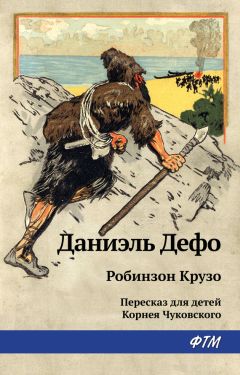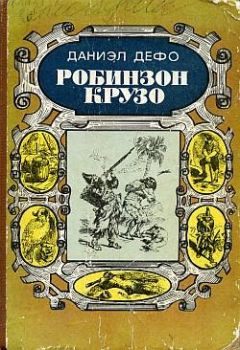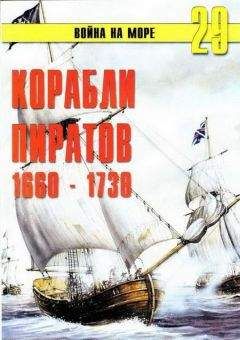Dewey Lambdin - The King`s Commission
At the evening stop, not half a day's march from the second lake where they would find McGilliveray's tribal towns, Alan took a tour of his men, seeing to it that they were bedded down comfortably and had a hot meal. Some of the Seminolee had put up some birds and nailed them with their insubstantial cane arrows tipped with fish bones or tiny flints. There was sofkee, a hominy meal mush, a soup or stew of the birds, succotash of sweet corn kernels and beans, and cool clear water to wash it down.
The men had been issued a small measure of rum, liberally mixed with water to have with their meal, and the Seminolee had crowded round to take a taste, though McGilliveray was leery of the practice, and warned all not to share more with them.
"'Ere ya go, Mister Lewrie, sir," Cony said, dishing up a bowl of sofkee with some of the game-bird stew ladled over it. "H'it ain't bad, really. Better eatin'n we got in the Chesapeake, sir. An' I got yer rum ration laid by, so's the Seminolee won't notice."
"You're a wonder, Cony," Alan said, sitting down cross-legged on a piece of sailcloth by a crackling small fire with the other officers. McGilliveray was at another fire with the Seminolee, stuffing food into his mouth with one hand and talking with the other. Pipes were going on all sides, though it was a rough blend, Cowell stated.
"Well, no one's turned into mad foaming bears yet from rum," Cashman said. "Though I wouldn't mind much."
"One is struck by how much progress we have made," Cowell said, smiling while perched on a fallen log for a seat. "It has all fallen out pretty much as young Desmond said it would. The Apalachee were friendly, and now so too are the Seminolee, giving us an escort and all."
"There is that," Cashman replied, laughing softly. "And the fact that we still have our hair and our livers."
"If one approaches people in a friendly, open manner, Captain, with something of value that they desire, as a prize for good behavior, what else could one expect?" Cowell sniffed. In the firelight he looked, in his Indian garb, much like some haggard bridge troll from a nursery story. "We have not given offense, have we?"
"No, but other white men before us have, and they're not the sort to forget easily, or forgive," Cashman commented between spoonfuls of victuals. "There's still the possibility that someone might be tempted to knock us off for our arms and the goods we carry, and the devil with the rest of the shipment. They have no concept of time, of waiting for things promised when they can get half a loaf now."
"For your information, these Seminolee are going with us to the Creek town," Cowell told them. "To get a share of the spoils, yes, and to visit. Indians either fight or feed you if you show up on their door step. Some of them have second wives among the Muskogee. They've sent for their mikkos to come parley. And they let Desmond know that his own mikkos are pretty much together at the main town ahead of us. It's some game they play, an annual contest of some importance to them."
"So Parliament's been called to session, and it's Cambridge Fair," Alan offered for a jest.
"It would appear so, Lieutenant Lewrie," Cowell replied stiffly, still on the outs with his naval commander. "I shall be glad to get there, put on a decent suit, and get out of these rags. And spend a night under a roof. No matter how exotic and exciting this journey of ours is, I must own to being unused to such discomfort."
"We did have a roof over our heads last night," Cashman pointed out. "That was about all, though, I'll grant you."
The Seminolee had erected a temporary fishing camp, replete with structures they called chickees, open platforms raised several feet off the ground and open to the night winds and any flying insects, with a thatched roof to keep off the rain. McGilliveray told them sleeping so high off the ground discouraged snakes that would otherwise crawl into their bedding for warmth, and made the leap too far for fleas. Either way, either the mosquitos or the tiny biting gnats had gotten to them, for they all itched and had broken out in rashes.
"Desmond tells me that as honored guests and ambassadors, we shall probably be quartered in the town house," Cowell went on. "If the visiting mikkos have not already taken it. Their winter meeting hall, I'm told, very solid and snug. Much like an Irish sod house, I think."
"God pity us," Cashman said grinning. "All fleas and no whiskey."
McGilliveray came back from the Seminolee fire circle to join them, and sat down gracefully in a cross-legged position. "If you have finished supper, you might wish to try a short parley with the Seminolee with me, sir. Their Raven is not very influential, but you will do great honor to sit with him and smoke a pipe or two. He's gaining note as a warrior, and as a great man, sure to lead a chiefdom in future."
"That sounds eminently sensible, thank you, Desmond, I shall."
Cony and Andrews came in from the dark, carrying large bundles of Spanish moss, which they had harvested from the nearest trees to make a soft mat for bedding, and McGilliveray smiled for the first time that day.
"I wouldn't if I were you, gentlemen. Don't sleep on moss."
"Why?" Alan asked, having used some the night before to make a pallet.
"There are tiny red bugs that thrive in the moss, like very small lice," McGilliveray told them. "They can hardly be seen, but they drive people mad from the itching."
"I was wondering what 'gentlemen's companions' had gotten to us," Cashman said, and Cony and Andrews dumped the stuff immediately and began to wipe their arms and chests down.
"Once we get to the town, I can give you some grease to make them leave you, but for tonight, I am afraid you shall have to scratch." He frowned. "Did you use some last night? I'm sorry, I should have told you. There is so much to know, and so much of it comes naturally to me, that it slipped my mind entirely."
"We could take a dip and scrub them off. I have some soap," Alan offered.
"Not at night!" McGilliveray gasped. "The Water-Cougar…!" He paused and pouted at his own reaction. "It's safer to avoid the water after dark. You can't see the snakes until you stumble upon them."
"What a country," Alan snapped, exasperated and now itching fit to feel the need to scream. Damme, I started out being terrified of being gutted and scalped, and now I'm more scared of dropping my breeches after dark than I am of these mangy pagans, he thought.
"It is good country, even so," Cowell said. "Look at these fine meadows, just waiting for herds to graze them. Think of the crops that could be raised in this rich soil. Forests enough to build fine home-steads."
"It is a fine country, sir," McGilliveray echoed. "But, who is to do this farming and cattle-raising? Our people like having wild land around them, land no one uses, except for hunting and fishing. Do not forget that one of our aims is to reach some sort of accommodation with our respective peoples. The lands are just as rich to the east, on the other side of Apalachee Bay."
"You mean this would revert to Indian land?" Cashman asked.
"There are swamps and rivers running north and south to the east. The new American colony of Georgia to the north," McGilliveray pointed out. "If my people, and the Seminolee, are to be your barrier to future expansion here in the south by the Rebels, we must determine where the Creek, Seminolee and others can live in peace, with secure borders."
"Why can't we live together?" Alan asked, trying his hand at politics. "It would be good for your people, would it not?"
"When has it ever been good for Indians to live cheek-to-jowl with Europeans, Lieutenant Lewrie?" McGilliveray asked sadly. "Do you but think back on the history of relations between us since the first colonists. Slaughter, misunderstandings, Indians displaced from their ancestral lands by usurpers. We shall never understand each other. You think in terms of property to buy and sell; my people own everything, and nothing. Our ways are so different. Your people slave to make a living, put up houses to last hundreds of years, while my people do with so little, and all we have is impermanent, taking only what we need. We are clean in our personal habits of bathing each morning, but wear the same single trade-good clothing until they wear out, and have no need for more, just to have something to prove we are wealthy, as you do. I saw your sea chest aboard ship, sir. You carry a lifetime's worth of goods for your comfort. I and any of my people could gather his life's possessions in a single sack, and feel rich."
"Well…" Alan began but Cashman shushed him with a nudge.
"Perhaps sometime in the distant future, there will be good relations between us, but until then, it would be best if someone could say, here is Indian land this side of this river. No whites but traders and missionaries go there. Here is where Indians do not go. We Creeks and the Seminolee know our borders, to the north where Upper Creek territory starts, and the Upper Creek know where Cherokee land begins. To the west of here are Chickasaw, Choctaw, Natchez. If white men come among us here, there is nowhere for us to go. If rum comes among us as trade goods, we lose respect for our mikkos and mischief comes down with the Thunder Boys. We cannot be with you and stay a people. If you need us, and truly want to live in peace with us, you must realize this. If you want us to take the arms and fight your enemies for you, then you must let us live our own ways on our own lands. To keep our lands and our ways, we need your support and your arms, your soldiers close by."
"But what about the smaller tribes already here?" Cashman asked.
"The Spanish and the French have already destroyed them," McGilliveray said. "They could move to the Indian territories, if they do not like living among the Rebels or the British. People in small groups can always find a home in another tribe easily. And if there is land that you want, then the Upper Creeks, the Lower Creeks, and the Seminolee, tied by trade treaties, supported by British arms, can make war on the smaller tribes with you. The Alabama, Biloxi, Kosati, and some of the tribes along the coast. West of here, toward Pensacola, and the mouth of the Mobile, there are fewer swamps along the coast. If we march together, you take certain lands, and we take certain lands, making sure we have good borders, you get what you want, and we get what we want. When the Rebels come across the mountains, as they will, they will put pressure on the Cherokee, and the small tribes in Georgia, who will be forced to move onto our lands. But if my people have strong allies who will march to our aid and give us weapons, we can say 'no' to them."
"An Indian kingdom," Cowell said, having heard the argument before. "We join hands with sultans and rajahs in the East Indies so."
"This would give heart to the Cherokee to hold onto their land, to come parley with England for the same sort of help. And you already help the Iroquois League north of them. A solid barrier, all along the great river Mississippi, west of the mountains where the Rebels live."
"Been my experience with sultans that they'd rather fight among themselves than eat," Cashman stated, a trifle dubious.
"Then bring officers among us, white officers and sergeants to lead us, to teach us, like the East India Company raises native units," McGilliveray urged, getting excited. "Bring teachers to help us develop, our own books, printed in Muskogean. Do you know just how big this continent really is, Captain? How far it stretches to the other ocean? It would take a thousand years to fill it up with people. Think of Indian regiments who could help you take it and hold it. Think of future wars with the Rebels, and how the people east of the mountains could be defeated with our help, not just as irregular scouts and raiders, but as a field army, like Germanic and Gallic auxiliaries who supplied the cavalry to Imperial Rome! And how barbaric were the Germans to the Romans at the time. As barbaric as we appear to your burgeoning Empire now?"



